Writers are always looking ahead at what might next impact us as a species. As the world undergoes climate changes, authors have begun to look at what the world may look like to those who survive those events. These three works focus on our world sometime in the near future, dictated by different occurrences of disasters, but connected by one theme: familial ties.
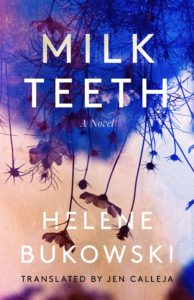 “Milk Teeth” by Helene Bukowski is the story of outsiders clinging to each other in a world that grows hotter every day. Skalde and her mother, Edith, are barely tolerated in their territory, a community of farms that is isolated by a thick fog from the rest of the world. Edith is from outside and as such is seen as an intruder and this distinction extends to Skalde. One day the fog dissipates and an ever-increasing heat replaces it. As conditions worsen and food becomes scarce and paranoia increases, Meisis, a young child, appears seemingly from thin air. Skalde takes Meisis in and faces an ever increasingly hostile community. Exploring family, community, and identity, “Milk Teeth” is a look at what happens when the rest of the world disappears and family is all you have left.
“Milk Teeth” by Helene Bukowski is the story of outsiders clinging to each other in a world that grows hotter every day. Skalde and her mother, Edith, are barely tolerated in their territory, a community of farms that is isolated by a thick fog from the rest of the world. Edith is from outside and as such is seen as an intruder and this distinction extends to Skalde. One day the fog dissipates and an ever-increasing heat replaces it. As conditions worsen and food becomes scarce and paranoia increases, Meisis, a young child, appears seemingly from thin air. Skalde takes Meisis in and faces an ever increasingly hostile community. Exploring family, community, and identity, “Milk Teeth” is a look at what happens when the rest of the world disappears and family is all you have left.
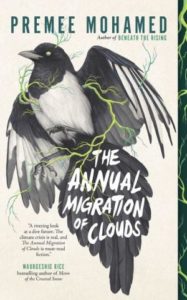 Premee Mohamed tackles generational trauma and climate disaster in her latest work entitled, “The Annual Migration of Clouds.” The survivors of a world, in which climate disasters such as earthquakes and dust storms have wreaked havoc, find themselves facing a new component. Cad, a parasitic fungus, begins to infect what remains of the human population. Able to alter the minds of its victims, Cad is passed genetically, from parent to child. Reid, a child born with Cad, ruminates on her future and the future of her community. She earns a spot in one of the last remaining bastions of modern human society, but is scared of what her leaving will mean for her and for her mother, a carrier of Cad as well. Relying on the kindness of the community, Reid must decide if the unknown is worth it. Hopeful even in the darkest moments, Mohamed’s latest work speaks to the family we carry with us always.
Premee Mohamed tackles generational trauma and climate disaster in her latest work entitled, “The Annual Migration of Clouds.” The survivors of a world, in which climate disasters such as earthquakes and dust storms have wreaked havoc, find themselves facing a new component. Cad, a parasitic fungus, begins to infect what remains of the human population. Able to alter the minds of its victims, Cad is passed genetically, from parent to child. Reid, a child born with Cad, ruminates on her future and the future of her community. She earns a spot in one of the last remaining bastions of modern human society, but is scared of what her leaving will mean for her and for her mother, a carrier of Cad as well. Relying on the kindness of the community, Reid must decide if the unknown is worth it. Hopeful even in the darkest moments, Mohamed’s latest work speaks to the family we carry with us always.
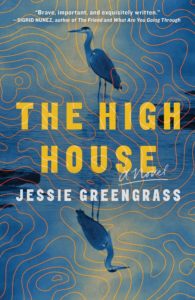 “The High House” by Jessie Greengrass take place during a time when water has overrun the land. The story oscillates between Caro, stepdaughter to Francesca, the owner of the High House, and Sal, the granddaughter of Grandy, its caretaker. Both Caro and Sal see the house as interruption to their everyday lives, but miss the truth of it. The High House is essentially an ark, built and fortified by Francesca, a climate scientist, in order to protect the survivors of the coming climate disaster. When the disaster comes, Sal and Caro are thrown together and must navigate the remains of the world together while caring for those left behind. Greengrass shows us what remains when the rest of the world is washed away.
“The High House” by Jessie Greengrass take place during a time when water has overrun the land. The story oscillates between Caro, stepdaughter to Francesca, the owner of the High House, and Sal, the granddaughter of Grandy, its caretaker. Both Caro and Sal see the house as interruption to their everyday lives, but miss the truth of it. The High House is essentially an ark, built and fortified by Francesca, a climate scientist, in order to protect the survivors of the coming climate disaster. When the disaster comes, Sal and Caro are thrown together and must navigate the remains of the world together while caring for those left behind. Greengrass shows us what remains when the rest of the world is washed away.
Even though these books represent some of the worst-case scenarios for our world, each is hopeful that we will make the most out of what is left.
 James Hannaham’s latest work of poetry, “
James Hannaham’s latest work of poetry, “ “
“ The latest book of poetry by Kevin Young entitled “
The latest book of poetry by Kevin Young entitled “
 The year is quickly coming to a close and with the New Year comes a chance to revitalize and learn about our outdoor spaces. Take a look at these reads to find new ways to establish some new methods and new connections with the outside world.
The year is quickly coming to a close and with the New Year comes a chance to revitalize and learn about our outdoor spaces. Take a look at these reads to find new ways to establish some new methods and new connections with the outside world.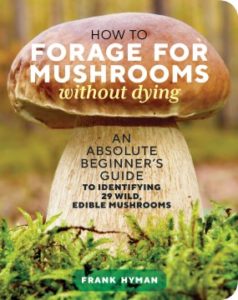 If you are looking for more of an encyclopedia style book about mushrooms, check out
If you are looking for more of an encyclopedia style book about mushrooms, check out 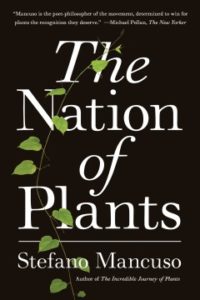 While both the previous authors are lovers of the natural world, the third takes it one step further. Stefano Mancuso, author of
While both the previous authors are lovers of the natural world, the third takes it one step further. Stefano Mancuso, author of 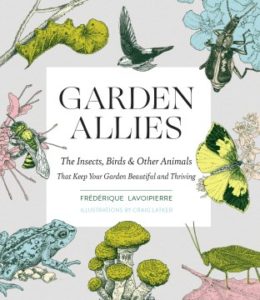 Interested in how to be more of a friend to plants? Check out
Interested in how to be more of a friend to plants? Check out 
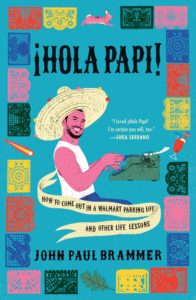 Another voice that brings their own perspective is John Paul Brammer in his book of essays: ¡
Another voice that brings their own perspective is John Paul Brammer in his book of essays: ¡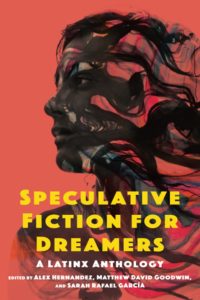
 As of late, science fiction has been a bit more science fact. Technological advances are growing exponentially and turning possibility into actuality. Tomorrow is coming much quicker than we anticipated and these novels, while today’s science fiction, might just be tomorrow’s reality.
As of late, science fiction has been a bit more science fact. Technological advances are growing exponentially and turning possibility into actuality. Tomorrow is coming much quicker than we anticipated and these novels, while today’s science fiction, might just be tomorrow’s reality. Corporations are expanding into space and in David Ebenbach’s new novel, they are spearheading the settling of Mars. In
Corporations are expanding into space and in David Ebenbach’s new novel, they are spearheading the settling of Mars. In  What do you get when you mix the Terminator with a furby? Probably something creepy and not something you’d want to meet in a dark alley. But you would also get Pounce. Pounce is a state-of-the-art “nannybot” in the novel
What do you get when you mix the Terminator with a furby? Probably something creepy and not something you’d want to meet in a dark alley. But you would also get Pounce. Pounce is a state-of-the-art “nannybot” in the novel  Genetic animal testing and the early 2000s combine with a locked door mystery in
Genetic animal testing and the early 2000s combine with a locked door mystery in